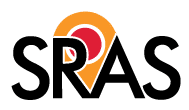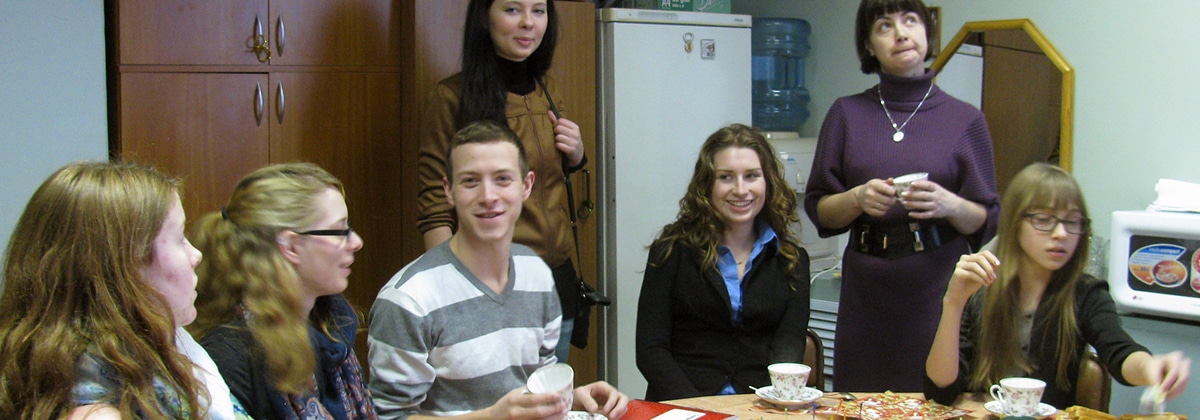Academics
If you are over 18 years of age and have earned a high school diploma, you are eligible for most of our programs (some list specific additional requirements). We generally expect that you will have had a minimum GPA of 2.5 overall and 3.0 in major courses, but GPA is not the only factor we consider when reviewing your application.
You do NOT need to be a current student at a university or college. You need NOT be a US citizen or resident. Previous foreign language study is NOT required for most programs. SRAS does not discriminate based on age, sex, race, or any other factor.
For any eligibility questions, including questions about accommodating disabilities or special circumstances, please contact us.
All SRAS programs are designed to allow you to receive academic credit at your home institution. However, it is ultimately your home institution’s decision whether and how to award that credit. SRAS will do everything possible to help facilitate credit transfer by providing any information your home institution requires.
We have a US School of Record for the following:
- The US School of Record for SRAS Programs in Bishkek is University of Montana.
- The US School of Record for SRAS Programs in Batumi (Georgia), Tbilisi (Georgia), Riga (Latvia), and Yerevan (Armenia) is Stetson University.
A US School of Record means that your program is documented by an accredited US university. The School of Record will issue your transcript, making credit transfer relatively routine.
In the following SRAS locations, you receive a transcript directly from the host institution.
- Civitas University (Warsaw, Poland)
The process of transferring credits directly from foreign institutions is somewhat more complicated and can depend on how experienced your home institution is and their own policies concerning transfer credit. SRAS has decades of experience in helping to facilitate this and we are ready to provide your home institution with the information they need, including syllabi, sample transcripts, and guidance.
For instance, for many universities abroad, course numbers and even syllabi are not common. SRAS, however, has assisted our hosts in developing syllabi and can provide you with one in advance in most cases. Transcripts, however, are issued in a format used by the host university and will not include course numbers. They will indicate course name, level (where applicable), hours completed (or ECTS credits), and grade. You should ask your study abroad office how best to handle this on your credit transfer form.
Transcripts are typically in English, and in some cases in both Russian and English. Hours indicated are academic hours (one academic hour equals 40-45 minutes unless otherwise specified). Grades may be indicated in any of the following formats:
- Word: Excellent, Good, Satisfactory, Unsatisfactory, Fail
- Number: 5, 4, 3, 2, 1
- Letter: A, B, C, D, F
You will find additional information about transcripts on each individual program page, under “Host Institution / School of Record.”
Transcripts are usually ready a few weeks after the program ends and will be sent to the program transcript address you have entered in your SRAS account.
During the pre-enrollment stage, we will ask you to complete a preliminary language level assessment. This is more for general planning purposes. Upon arrival, you will be evaluated again, for more accurate placement in a group. If you need syllabi prior to the program start, we can provide an approximate course syllabus based on your previous language study.
Many of our locations use the Common European Framework of Reference for Languages (CEFR) to identify levels of language proficiency. Please refer to this chart to compare CEFR ratings with other common assessment systems.
CEFR A1 (Breakthrough) | ACTFL Novice High | ILR 1 | TRKI Elementary |
Click here for more information about all of these rating systems. Also, this is a good resource that roughly tells you how many hours you need to reach each level.
As an example, let’s say you have completed one year of language study in the US (100 level) and then you take a year abroad. You would cover 200 and 300 level in that time. If you have taken the initiative to get out and speak to locals, your measured conversation skills should be well beyond most 300-level students in the US when you return. Your language learning ability will of course also affect your progress.
Most SRAS programs include an intensive Russian language core of 20 hours per week. Thus, you could earn 15-18 credits each semester on language alone. Your home university will determine how these credits will apply to your major.
Your schedule. Scheduling is completed after your arrival. Most of our host universities post schedules even for local students only at the beginning of the term. This is normal. Courses usually begin on the second or third business day after you arrive. This allows for testing, orientation, and for you to sleep off some jet-lag. Courses tend to be held M-F, between 9am and 3pm. However, it is not uncommon, particularly if you are joining some non-language, mainstream courses, for there to even be an occasional class session on a weekend.
Your classmates. We introduce SRAS students to each other before arrival via email. You will receive information your classmates have shared about their home university, interests, home state, major/minors, etc. Classes are diverse, however. Language courses are typically taught through each university’s program for foreigners. Students from non-SRAS programs and from countries throughout the world (especially Europe and Asia) are likely to be in attendance. Language classes typically have five to ten students, but occasionally as many as fifteen or as little as one or two. Class size for non-language classes offered with SRAS programs typically ranges from one to five but can be more. Mainstream electives can also be taken with local students in most locations, either in English or the local language. Mainstream class sizes can vary greatly.
Different teaching style, classroom ambience. You are not in Kansas anymore, so-to-speak! You should prepare mentally for some differences. While the US has developed a tradition of class discussions, many instructors abroad may still focus on lecture and memorization. Teachers expect to be greeted and addressed formally unless they give you permission to do otherwise. Classrooms are more formal places abroad. Local students often dress for class like you might dress for the office or church. At minimum, hats and clothes usually reserved for sleeping or sport will not be worn to class. Eating is not typically allowed during class, nor is texting/checking your phone. Since many classes are quite small, behavior is likely to be noticed. While some of these differences may be initially surprising to you or even frustrating, keep in mind they are why you are going abroad in the first place – to experience a new culture!
SRAS encourages independent research abroad, whether undertaken as a student’s personal interest or as part of a student’s degree program coursework.
Applying for an Optional Research Component: Interested students can apply through their regular SRAS application. In the elective research section, submit your research/project proposal summary, including a clear thesis/project topic and several sub-points that you intend to research/develop. Also describe how you intend to conduct your research – whether through archives, interviews, field work, or otherwise. In evaluating the research section of the application, SRAS will consider your timing, intended location of study, relevant language level, and the project proposal itself.
Included Services: If approved, SRAS may assist students with thier research or projects in various ways.
- Orientation session at a relevant archive or library
- Consultation with a local advisor
- Substitution of some courses or course hours with regular advising sessions
Usually, these basic services will be included in the basic program cost. No additional charge is applied. This is our way of encouraging promising, well-prepared student research. Students are additionally encouraged to submit their final work for possible publication in Vestnik, an student-driven academic journal run by SRAS.
Additional Services: Students seeking to engage in research that is beyond their current language ability should be prepared for additional expenses related to translation, interpretation, archival support, or more extensive advising.
Research components are already included with two SRAS programs: Language and Society (in St. Petersburg, Russia) and Security and Society in the Information Age (in Warsaw, Poland). These structured experiences include the opportunity for publication and presentation.
"My semester back home so far has been incredibly influenced by my semester abroad with SRAS and I find myself talking about it almost daily. Since many of my classes touch on the region (Europe after Socialism, Central Asian Politics), I'm able to add comments and insights unavailable to me before. My contributions to our Russian club have also been greatly enriched. Thank you for everything you did to facilitate this experience and going out of your way to ensure our success."
- E. Finn, University of Massachusetts Amherst
"At a time in my life when I was at a crossroads regarding where my career might take me, this course showed me a path that truly inspired me, and I haven't looked back since."
- B. DeYoung, Reed College
"I wanted to find a program that combined my love of Russia and my passion for environmental studies. Because of my interest in environmental issues, Lake Baikal had always been a site of interest to me. Studying abroad in Siberia gives you the opportunity to see a completely different side of Russia and the Russian people. Just think, few people at home even know that Siberia is anything but a wintery tundra!"
- I. Korsgard
"I spent Fall and Spring with your program in St. Petersburg and it was truly the highlight and culmination of my University experience and just a banner year! I can't thank you enough for or gush enough about your program. I recommend it to just about everyone I talk to, whether or not they're interested in learning Russian."
- B. Lewis, University of Utah
"I’ve studied in Irkutsk and St. Petersburg with SRAS, but [Bishkek] is, by far, my favorite because of the intense focus on speaking skills. I spend about three hours, 4 times a week speaking one-on-one. It's such a unique opportunity! The people are also especially friendly here. My homestay is fantastic, the coordinator is a never-ending wealth of help, and the food of Central Asia is delicious."
- C. Hughes, The Evergreen State College

